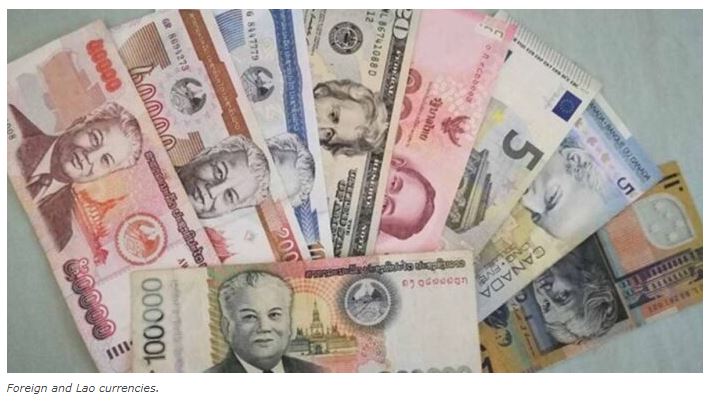Explainer: Amended Lao Law on Foreign Currency Management
Over the past two years, Laos has experienced a sharp depreciation of its local currency, the LAK, against foreign currencies. The government has taken a series of measures to thwart this depreciation and get the local currency back on track. One of these measures was the closure of foreign exchange shops, other than those of the commercial banks, to afford the Bank of Lao PDR better control over the exchange rate throughout the country.
It was in this context that the amended Law on the Management of Foreign Currency was published on 30 November 2022. One objective of this law is to ensure that the foreign exchange liquidity of the country grows stronger—that is, to increase the reserve of foreign currency held in the country. This reserve is usually composed of cash or gold and is a medium to keep the value of the local currency at a fixed rate or, amongst other things, to ensure that the country can satisfy its external financial obligations. Since the issuing of these regulations, the exchange rate appears to have stabilized, as indicated in the World Bank’s monthly report of May 2023.
The amended law also aims to attract foreign currency by ensuring that transactions in foreign currency are made via the national banking system and to keep foreign currency in the country by limiting the use of foreign currency. This affects the prospect of accepting payment in a foreign currency and thus impacts the daily life of people living or operating a business in Laos.
Application of Foreign Currency Law
The Law on the Management of Foreign Currency applies to all individuals, legal entities (such as enterprises and companies), and domestic or foreign organizations operating or based in Laos. Though the law applies to both tourists and residents, some provisions or broader rights may be granted to Lao residents.
Requiring Payment in Lao Kip
Compared to neighboring countries like Cambodia, Laos keeps a solid grasp on the use of foreign currencies. The rule is that payment in a foreign currency is prohibited: payment for goods, services, debt, dividends, or taxes must be made in LAK. The list is not exhaustive. Regarding employment relationships, employees’ remuneration, such as salary, wages, bonuses, welfare benefits, and so on must be paid in LAK.
Payment via a bank account holding foreign currency must be converted prior to proceeding with a payment and the conversion must be done at a commercial bank established in Laos.
Similarly, announcements or advertisements of the price of goods or services in a foreign currency are prohibited. The amended law also seems to prevent suggestions that a price in LAK may be adjusted based on another currency. An advertisement for a job in Laos can also not offer a salary in a foreign currency.
Permissible Use of Foreign Currency
Individuals, legal entities, and organizations performing cross-border business transactions must do so via a bank account in a locally established commercial bank. The amended law prohibits the opening of a bank account outside of the country without the approval of the Bank of Lao PDR, save certain situations such as foreign study, diplomatic officials sent abroad, and employees working abroad.
To settle payments in a foreign currency, a commercial bank can sell foreign currency to an individual, legal entity, or organization holding a bank account. The commercial bank will consider the sale of foreign currency depending on the nature of the transaction. Typical instances where the sale of foreign currency would be allowed are payment for imported goods, payment for services having a direct relationship with the import-export of goods (e.g., transportation, insurance, or warehouse charges), or repayment of an officially approved loan made in a foreign currency. The law is not detailed in this regard and a regulation to provide details on the interpretation of the law may be necessary.
Sanctions
There is a wide range of sanctions for various violations. Some offenses, such as first-time violations that are deemed ‘light’ are subject to a warning with a reminder of the importance of complying with the law. Certain types of violations, such as using foreign currency in contravention of the law, using a payment system outside of the Lao banking system or not approved by the Bank of Lao PDR, opening a bank account abroad without authorization, etc. are subject to harsher financial penalties.
If enterprises, companies, or organizations persist in their violations despite being sanctioned, the authorities may pursue administrative remedies against them, which could mean suspension of (1) an import or export authorization, (2) wire-transfer authorization, or (3) even of the business altogether.
Such violations may also be subject to criminal charges, potentially leading to fines and/or
imprisonment. Though the Penal Code requires clarification in this regard, parties should exercise caution and always seek to comply with the latest regulations relating to foreign currency.
Source: https://laotiantimes.com/2023/05/31/explainer-amended-lao-law-on-foreign-currency-management/


 English
English




